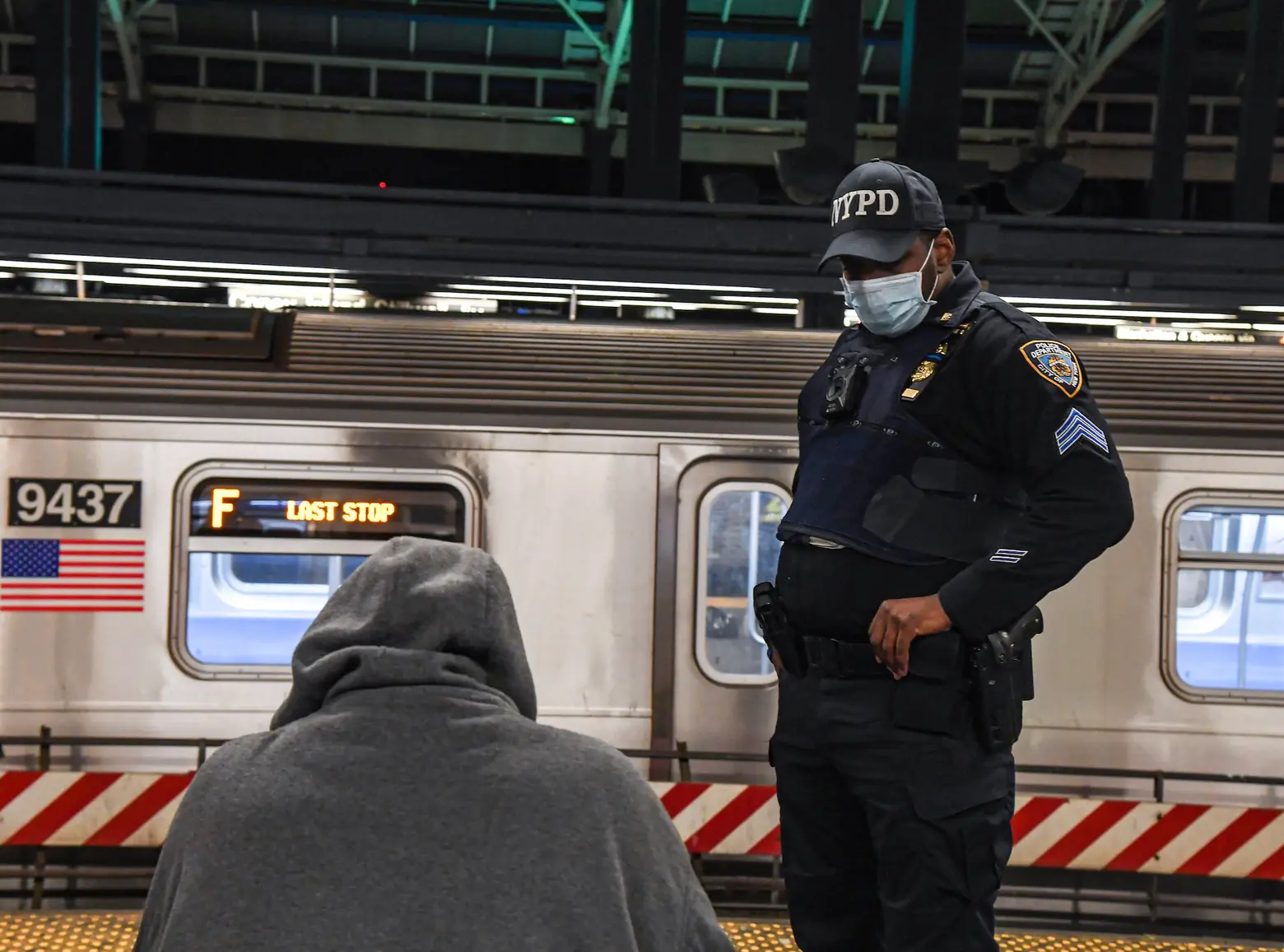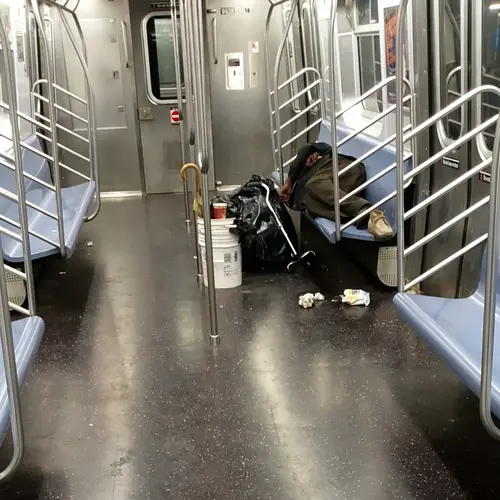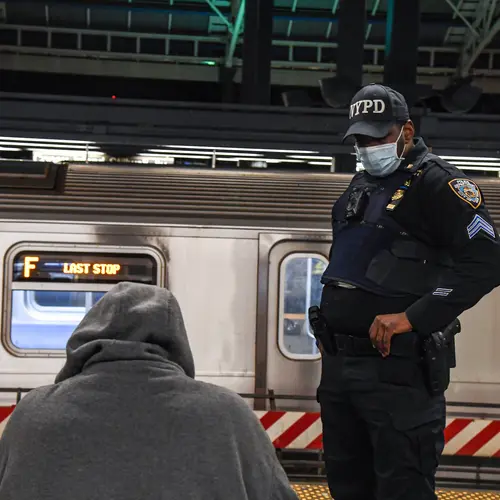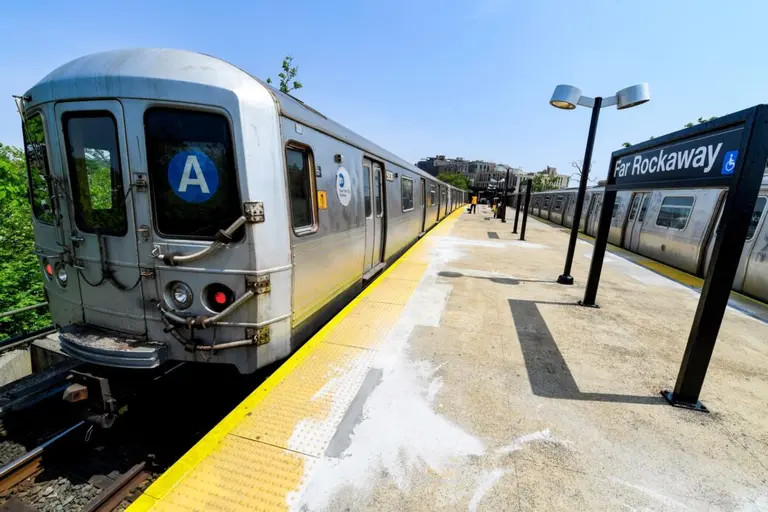NYC to involuntarily hospitalize people with severe mental illness

Photo from 2020 subway closure by Marc A. Hermann / MTA New York City Transit
Mayor Eric Adams announced on Tuesday an 11-point mental health legislative agenda for the next session in Albany aimed at addressing a growing need to provide care for people living on New York City’s streets and subways with untreated severe mental illness. A controversial part of the new plan includes a directive for emergency medical workers to hospitalize those who are deemed too mentally ill to provide basic care for themselves, even if they pose no threat to the public.
The new directive clarifies responsibility for providing care when severe mental illness appears to prevent an individual from meeting their basic needs; outreach workers, city-operated hospitals and first responders now possess the legal authority to provide care when severe mental illness prevents an individual from “meeting their own basic human needs to the extent that they are a danger to themselves.”
The directive aims to dispel the idea that involuntary intervention by law requires a display of overtly violent, suicidal, dangerous, or harmful behavior.
Adams also announced the development of a “tele-consult” line that will offer police officers direct access to clinicians. The line will be designed to provide critical clinical advice for police officers dealing with individuals in mental distress.
The plan addresses what the mayor’s office called in a statement, “gaps in New York State’s Mental Hygiene Law that intensify the city’s challenges in meeting the needs of its most vulnerable residents with severe mental illness.”
The aforementioned challenges have been highlighted in recent months by a spate of crime and violence involving mentally ill people on the city’s streets and in subway stations. According to the New York Times, Gov. Kathy Hochul has said the mayor’s plan would add to efforts already being undertaken by the state and city.
“With this announcement, we are bolstering our strategies to get people who are in danger due to untreated severe mental illness the help they need,” Deputy Mayor for Health and Human Services Anne Williams-Isom said in a statement.
“We are adding layers of additional support for our first responders to work with clinical specialists in the moment and at the time it is needed, and we are pursuing all other areas for assistance: Health, social services, legal, and legislative.”
As Politico reports, the new directive expands on a policy already in place. Prior to Tuesday’s announcement, city employees and hospital staff were instructed to limit the involuntary commitment program–known as Kendra’s Law–to those perceived as a threat to the general public as well as themselves.
Some advocates for the mentally ill say the mayor’s plan would not solve any problems and would create new ones. “The federal and state constitutions impose strict limits on the government’s ability to detain people experiencing mental illness–limits that the Mayor’s proposed expansion is likely to violate,” Donna Lieberman, the executive director of the New York Civil Liberties Union, told Politico in a statement.
“The mayor’s attempt to police away homelessness and sweep individuals out of sight is a page from the failed Giuliani playbook. With no real plan for housing, services, or support, the administration is choosing handcuffs and coercion.”
Measures in Adams’ legislative agenda include:
- Making the law explicit that a person requires care when their mental illness prevents them from meeting their own basic needs;
- Mandating that hospital clinicians consider a range of factors when assessing a patient’s need for involuntary admission or retention, including known treatment history and current ability to adhere to outpatient treatment;
- Requiring hospitals to screen all psychiatric patients prior to discharge for their need to receive “assisted outpatient treatment” (court-ordered care under “Kendra’s Law”);
- Allowing a broader range of trained mental health professionals to perform evaluations and community removals of individuals in crisis; and
- Requiring hospitals to notify known community providers when their clients are admitted or released and collaborate with community providers in preparing patients for discharge.
Adams has begun sending clinical co-response teams comprised of joint patrols from the city’s health department and the police department to patrol the city’s subway stations and respond to those who appear to have serious mental health issues with a clinician-led approach.
Additionally, the city, in partnership with New York State, will immediately begin rolling out a program offering comprehensive training to all clinicians, outreach workers, and first responders to ensure compassionate care when interacting with individuals suffering from severe mental illness.
RELATED:




























